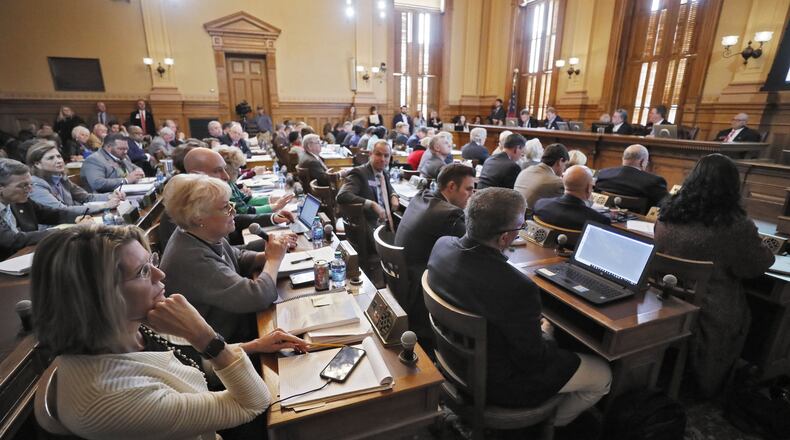Georgia finished its fiscal year with a strong month in June, assuring that the state can balance its books and likely have another surplus for 2019.
That's good news after some iffy months earlier this year, when state tax collections were down or barely holding steady. The Kemp administration gave agencies and school districts a $235 million "holiday" in June from paying into Georgia's massive health insurance program for teachers, workers and retirees to make sure the state didn't run short.
Collections were up 7.4% in June over the same period in 2018, one of the stronger months this year. Income and sales tax collections — the biggest contributors to state revenue — were both strong in the final month of the fiscal year.
For the fiscal year, which ended June 30, collections were up 4.8%, or about $1.09 billion, more than enough to fund the $27 billion worth of spending the state did in 2019. Fiscal 2020 began July 1.
Collections were slow during some months earlier this year despite the implementation of a new law that requires online retailers to charge sales taxes on purchases made by Georgians. A state estimate said the law was expected to mean an extra $500 million to $600 million a year in sales-tax collections for state and local governments.
Even if the state hadn't raised enough tax money to pay for its spending this fiscal year, Gov. Brian Kemp inherited a $2.5 billion "rainy day" reserve from his predecessor.
Stay on top of what’s happening in Georgia government and politics at www.ajc.com/politics.
About the Author
Keep Reading
The Latest
Featured





